July 20, 2025 | 11:44 GMT +7
July 20, 2025 | 11:44 GMT +7
Hotline: 0913.378.918
July 20, 2025 | 11:44 GMT +7
Hotline: 0913.378.918
At the forum "Solutions to enhance competitiveness and promote export of key fruit products: passion fruit, banana, pineapple, coconut" held on July 18, Deputy Minister of Agriculture and Environment Tran Thanh Nam emphasized that with a total cultivation area of approximately 420,000 hectares and an annual yield of 6.3 million tons, the group of fruit crops including bananas, pineapples, coconuts, and passion fruit holds significant potential for breakthrough growth.
However, these four products require a fresh, methodical, and more decisive approach, especially in terms of seed quality and technology.

Deputy Minister Tran Thanh Nam: "Seeds are the key factor in boosting the production of competitive fruit crops." Photo: Nguyen Thuy.
As of now, only the coconut industry has surpassed the annual export value milestone of over USD 1 billion, mainly thanks to advancements in deep processing and product diversification. The remaining three: bananas, pineapples, and passion fruit, despite having large production volumes and extensive cultivation areas, have yet to reach a commensurate market position.
“We need to strive for all four of these products to become part of the ‘billion-dollar’ agricultural export group in the near future,” the Deputy Minister shared.
According to leaders from the Ministry of Agriculture and Environment, the key to unlocking a breakthrough lies in a comprehensive technological revolution, spanning seed quality, cultivation areas, farming practices, traceability, and logistics. If industry associations and businesses align in their efforts, the Ministry is ready to step in and collaborate to turn this vision into reality.
Deputy Minister Tran Thanh Nam emphasized the need to identify existing “bottlenecks " to accelerate progress and create a clear shift in the near future. Seed quality remains the foundational element but has long been underprioritized. Due to regulatory barriers, commercializing new seed varieties has been a challenging journey for many businesses.
However, this obstacle has been largely addressed thanks to the introduction of Government Decree 88/2025/NĐ-CP, which provides guidance for implementing National Assembly Resolution 193. The decree enables the piloting of special mechanisms aimed at promoting science, technology, and innovation.
“This is an opportunity for businesses to boldly invest in research and seed production, gradually mastering genetic resources and improving crop quality,” Mr. Nam emphasized.
In addition to seeds, raw material areas are also crucial components that determine competitiveness. Many cooperatives still operate in a fragmented manner, lacking the necessary linkages between production, processing, and consumption. The practice of sourcing from multiple suppliers complicates traceability, negatively impacting export credibility.
The Deputy Minister stressed the need to develop standardized raw material zones, complete with area codes and uniform farming practices. At the same time, strengthening linkages with cooperatives is essential, both at the input stage (seeds, agricultural supplies) and the output stage (consumption, processing).
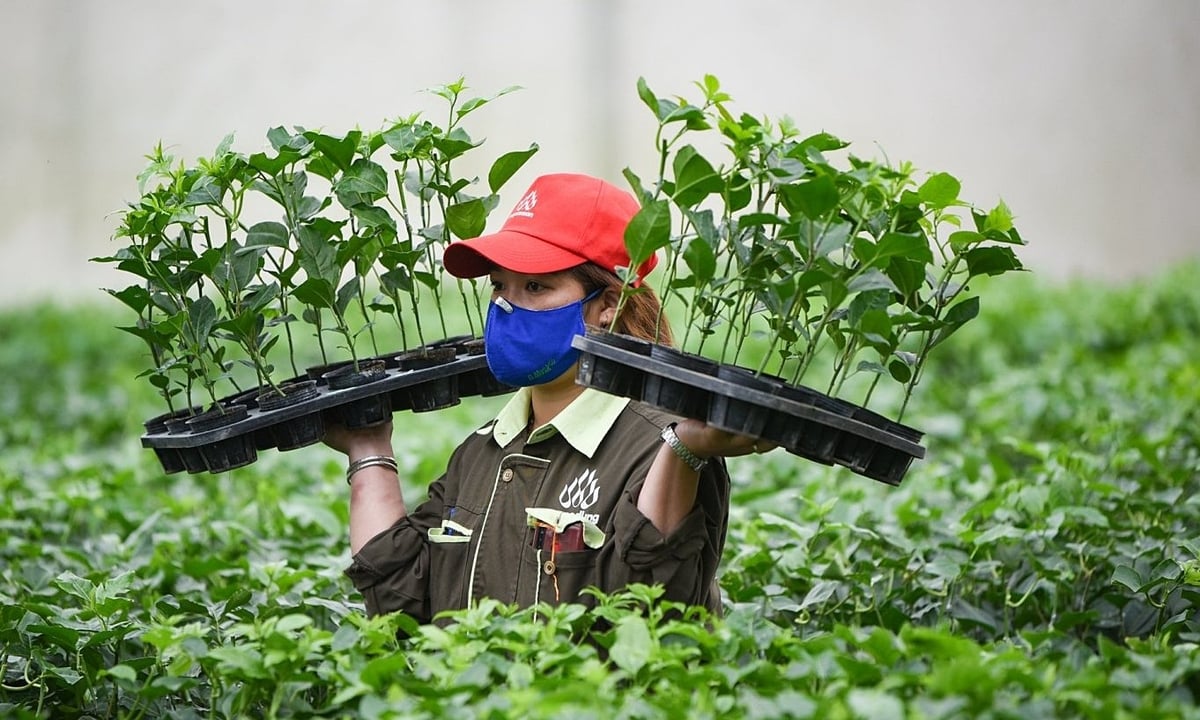
Passion fruit seedling production at Nafoods Company. Photo: Tung Dinh.
Another pressing issue highlighted by the Deputy Minister is the occurrence of contract breaches - or “backtracking” - between farmers and businesses. However, he clarified: “We must clearly distinguish between simple sales contracts and production linkage contracts within value chains. The latter are built on sustainable benefits and long-term commitments, and so far, no such contracts have been unilaterally terminated.”
In the context of the ongoing shift toward a two-tier governance model and increased decentralization to local authorities, the Deputy Minister emphasized that the Ministry of Agriculture and Environment will play an increasingly prominent role as a policy intermediary.
Nonetheless, to design practical and effective policies, collaboration with industry associations and pioneering businesses is essential. “No one understands the specific production practices, market dynamics, and value chains of a sector better than those directly involved. The role of associations in providing critical feedback, proposals, and creative policy input is indispensable,” he stated.
For long-term strategy, Deputy Minister Tran Thanh Nam encouraged sectors to learn from international experiences in building value chains and developing logistics infrastructure, especially from countries with similar production conditions. Cold storage systems, packaging centers, and post-harvest processing facilities must be upgraded to meet increasingly stringent international standards.
In conclusion, the Deputy Minister emphasized that to achieve the “billion-dollar” goal, the industry must regard seed quality and technology as foundational pillars, with standardized raw material zones as the base. At the same time, it's essential to mobilize the full strength of the entire ecosystem - from farmers and cooperatives to businesses and associations.
“If we stand united, we can absolutely spark a true revolution for Vietnamese fruit,” Deputy Minister Tran Thanh Nam concluded.
With a total cultivation area of over 420,000 hectares and an annual yield exceeding 6.3 million tons, the group of fruit crops including passion fruit, pineapple, banana, and coconut is becoming a cornerstone of Vietnam’s fruit industry. Among them, bananas lead in production with 3 million tons per year, followed by coconuts at 2.28 million tons, pineapples at 860,000 tons, and passion fruit at 163,000 tons.
In terms of exports, bananas brought in nearly USD 380 million, passion fruit over USD 222 million, pineapples around USD 34 million, while coconuts surpassed USD 1.1 billion in 2024. These products have made their way into demanding markets such as the EU, the United States, Japan, and South Korea, and hold a significant market share in China.
According to the Department of Plant Production and Protection, these figures highlight the vast potential of Vietnamese fruit to reach new heights - provided the industry is reorganized in a more structured manner, from seed quality and cultivation areas to processing and brand building.
Translated by Phuong Linh
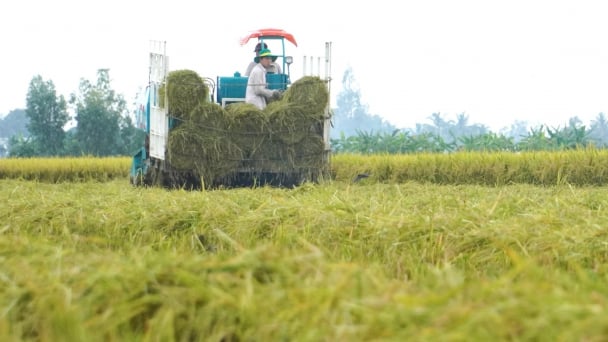
(VAN) One of the most effective strategies for establishing a sustainable, safe, and environmentally friendly agricultural sector that can adapt to the effects of climate change is to promote the circular economy in agriculture.

(VAN) Most of the victims were from Hanoi and were traveling with their families, including more than 20 children. The oldest victim was 53 years old; the youngest, just 3.
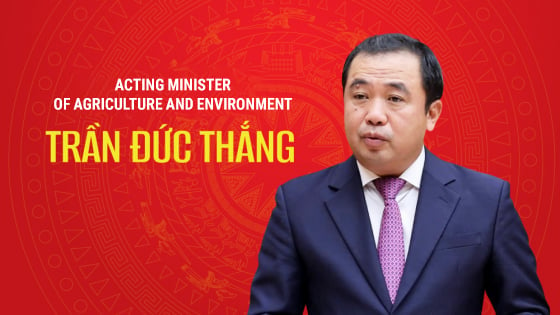
(VAN) On July 19, Prime Minister Pham Minh Chinh appointed Tran Duc Thang as Acting Minister of Agriculture and Environment.
![Con Dao drowning in plastic waste: [3] Fighting from deep seabed](https://t.ex-cdn.com/nongnghiepmoitruong.vn/608w/files/chinq/2025/07/18/5255-bai-3-cuoc-chien-tu-day-bien-sau-063106_91-213708.jpg)
(VAN) From young divers to local fishermen, many are heading into the sea not to admire the coral reefs, but to collect trash to save Con Dao.
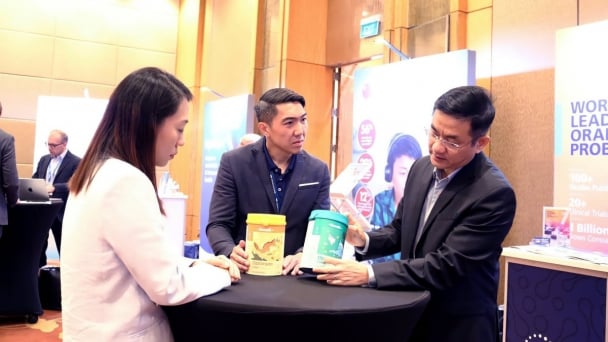
(VAN) Vinamilk is the first and only Vietnamese representative invited to speak at Growth Asia Summit 2025, held in Singapore from July 15 to 17, 2025.
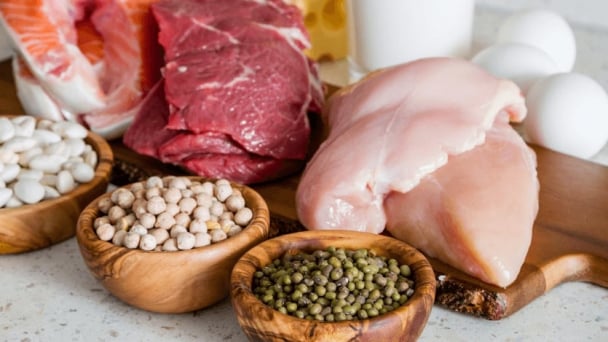
(VAN) New edition examines market trends over the coming decade, with focus on mitigating emissions and boosting food security for the world’s poorest.